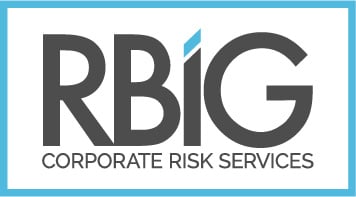New research has revealed that nearly seven out of 10 UK employees expect their employer to play a meaningful role in ensuring they are as healthy as possible.

The recently published Edeleman Trust Barometer Special Report: Trust and Health also found that, globally, 62% expected their employers to offer health incentives and information.
It further found that a substantial majority - 66% - thought employers should implement health policies and 47% that they offer mental health support and prevent burnout.
These findings comes as the NHS prepares to battle a huge pandemic induced patient backlog.
With Covid still placing immense pressures on hospitals, a record 6.2 million people are now on waiting lists for treatment.
Wait times

As The Times reported in April, UK patients also find it harder to see a GP than in any other leading western country.
Citing the Edelman report the newspaper also noted that around 60 per cent of Britons said they could not get “very good” care.
When considering employees and potential employees' expectations, companies also need factor in wider issues.
Healthy rewards
The recruitment market is as competitive as it's been for some years.
Inflation is currently sitting at around 9% and the cost of living crisis is now hitting household budgets.
Employers need respond to understandable calls for more rewarding salary packages.
All told, it's quite the conundrum for business owners and managers.

So, is there a cure all?
Not quite, but private medical insurance (PMI) and other employer supported healthcare provisions are a pretty good prescription.
In to win-win-win?

PMI is something of a win-win-win.
Win #1 is that, through preventative programmes, expert advice and early diagnoses, it can help keep your workforce healthier.
If they do fall ill, swift access to treatments and specialists can help get them more quickly get back on their feet and into work.
Musculoskeletal conditions affect one in four adults - 9.6 million people - and account for 30% of all GP consultations in England. Despite, or perhaps because of this, waiting lists for NHS treatment can be long.
PMI accelerates access to the physiotherapy that can in turn speed recovery.
Valued benefit
Win#2 is that PMI is a highly valued employee benefit.
A 2018 study by the Knowledge Academy found that 43% of UK employees cited PMI as the benefit they would most like included in their employee benefits package.
It doesn't take a great leap of faith to think think that, after Covid, that percentage has risen.
Win #3 is that PMI furbishes an employers brand.
Its provision signals a business that so cares about the wellbeing of its employees that it will invest in it.
Better still that investment is a relatively low cost way of enhancing a wider salary package.
There are also ways of further minimising cost.

Companies can choose which categories of employee are eligible to benefit from private medical insurance.
They can offer more specific benefits such as optical or dental insurance.
They can also opt to provide lower cost alternatives to PMI. These include health cash plans and healthcare trusts.
What does appear to be abundantly clear is that those companies which do not offer some kind of healthcare provision are putting themselves at a competitive disadvantage in the talent marketplace.
If you're interested in learning more about group private medical insurance and other corporate healthcare benefits, please contact Amy Speed on 0161 304 5053 or click here to drop her an email.






